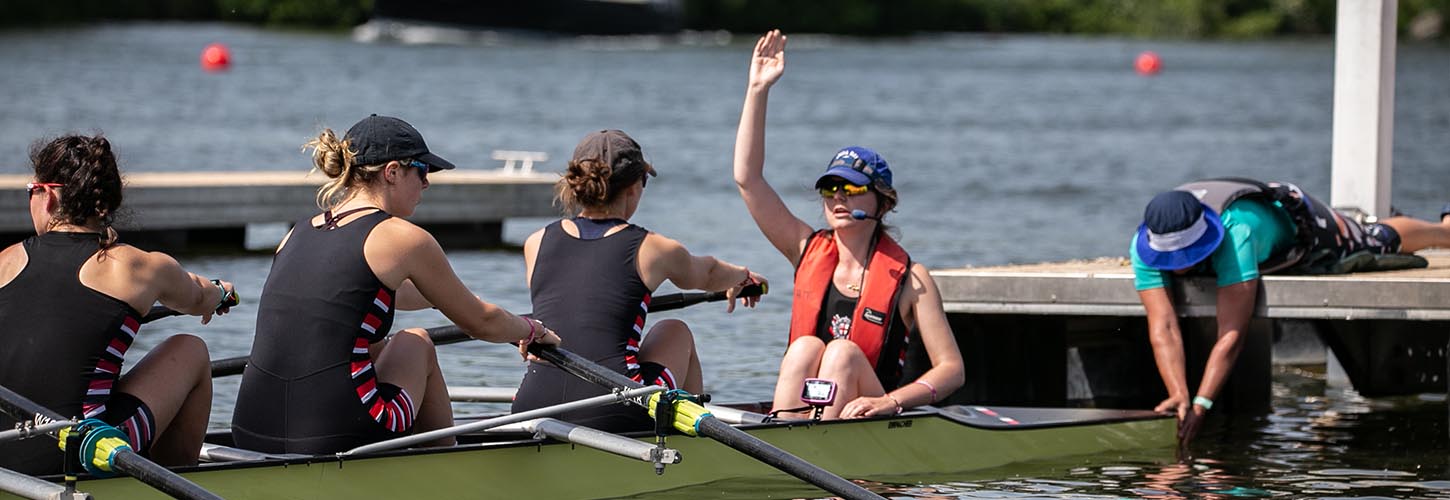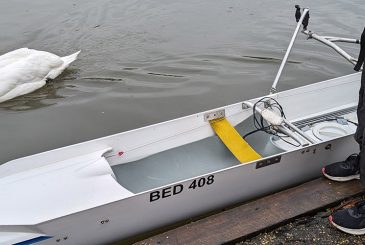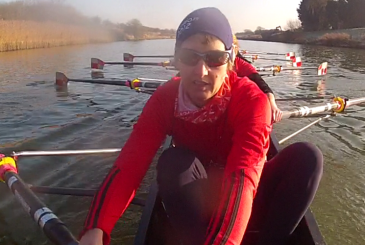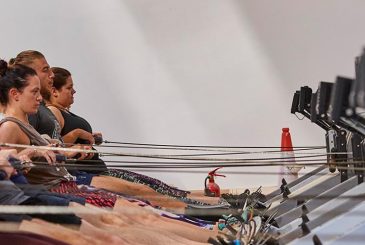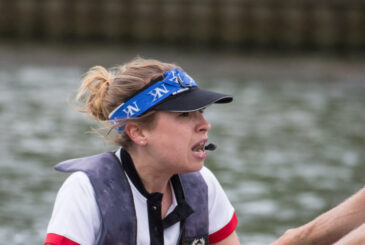Finding, training and retaining coxes is a constant challenge in most clubs. Joanne Harris explores what clubs can do to be somewhere coxes – new and experienced – want to be
To those who do not know much about rowing, the role of a cox is often misunderstood, characterised as “the little person shouting” or just a case of steering. But most rowers would vigorously contest this image, aware that an eight is really a nine and an experienced cox can make the difference between winning and losing, or a good outing and a bad one.
It is easy for a club’s focus to slip to recruiting and coaching rowers – because there are simply more of them, and most coaches are ex-rowers – leaving coxes’ development to one side.

Finding coxes
“Finding coxes is a tricky one and I don’t have any good answers to the question ‘how do you find good coxes?’,” says City of Bristol’s coxing lead Stephen Harris. “How to reach out to the community and find people who have the right set of skills who want to do it is really tricky.”
While many coxes start at school and continue through university to club or even elite level, some begin as adults.
Kate Fraser, who currently coxes at Dart Totnes, took that route. Fraser says she was interested in Milton Keynes RC’s learn-to-row course, but arrived at the wrong time so joined as a cox instead of waiting for the next course to start.
Fraser, who comes from a sailing background, found picking up boat handling skills easy and was well-supported in learning how to be a cox. When she eventually started to learn to row she did end up still coxing a lot of the time but, she says, Milton Keynes “went out of their way to make sure I still got tuition in terms of learning to row, which was really good”.
Harris says the majority of City of Bristol’s coxes have come from university, although some also join through the learn-to-row programme. Maisie Swindells, who coxes at Tyne RC, echoes this experience. Harris started coxing at university, while Swindells picked it up at school and has kept at it.
Identifying potential novice coxes can be tricky – Harris says the key attribute is confidence and the ability to speak up.
The biggest thing is not taking them for granted
“Find the people who understand that coxing is a mental exercise. The people that want to get super-fit are not the people you’re going to be able to convince,” he adds.
“If I’m looking for a really good cox I’m looking for someone who might be a musician, with an innate sense of rhythm,” suggests Fraser.
Putting the emphasis on value
Tyne has attracted a number of coxes from local universities by putting the emphasis on community and balancing rowing with academic or work life. Until crews are set for major races, Tyne’s squad trains as one big group with differing abilities and experience levels in one boat.
“The idea is to bring people up and show them what they could be in a couple of years’ time. We’ve found as a result the level of the rowing gets better much quicker, but also the club atmosphere is much better,” Swindells says.
Coxes need to feel they are integral to club and crew.
“I feel that to retain someone you’ve got to make them feel valued. To make them feel valued you’ve got to understand them,” Harris says.
“The biggest thing is not taking them for granted, the biggest thing is making them feel worthwhile,” agrees Fraser.
Cox retention is helped when coxes feel they are being coached
That can be as simple as coaches and rowers thanking a cox after every outing. But it’s also important to recognise their role as the voice of a coach on the water.
“A cox is both an athlete and coach at different times; 99 per cent of all the rowing strokes that I’m a part of I’m a coach not an athlete,” Harris points out.
Finally, make sure they have the equipment they need to do their job safely and effectively. You wouldn’t expect a rower to use a broken blade; coxboxes and sound systems are the cox’s equivalent.

Formalising the process
Recognising that vital dual role is key. But you can improve cox retention by ensuring that they are being coached too and that their development also matters. City of Bristol, for example, is looking at formalising how it can develop coxes from safe beginners to those who can really make a difference to a boat. Dart Totnes is running a coxes’ course, and encouraging its rowers to learn to cox.
Other clubs have introduced feedback processes from coaches and athletes – either verbal or written – to help coxes understand what they are doing well, and where they can improve. This also helps with selection, which will always involve an element of subjectivity.
Crucially, never bring weight into the equation. A good cox is a happy cox, not a light cox.

“That’s still there, the stereotype that you have to be teeny tiny to be coxing, but it is getting better. More often than not the coxes put more pressure on themselves,” Swindells says.
Clubs can also show they value coxes by offering a cheaper coxing membership cheaper
Commitment is important, but unlike rowers, they don’t lose fitness if they miss some outings. Swindells says Tyne have been especially understanding as she navigates a new job, encouraging her to keep turning up but without the pressure of making every session.
Clubs can also show they value coxes by offering a cheaper coxing membership. This recognises that coxes generally don’t use land facilities to the same extent as rowing athletes – but allows them to jump on an erg or bike occasionally if they wish.
Coxing can and should be incredibly rewarding, especially when you know your words have made a difference to the speed of a boat. It takes time and effort to make sure coxes are welcomed and valued, but it can pay off in spades.
Ways to keep your coxes
- Consider reduced membership for coxes
- Give them consistent, constructive feedback from athletes and coaches
- Coach through them not past them
- Give them opportunities to cox in races throughout the year
- If they want to learn to row, help them do it
- Never comment on their weight.


